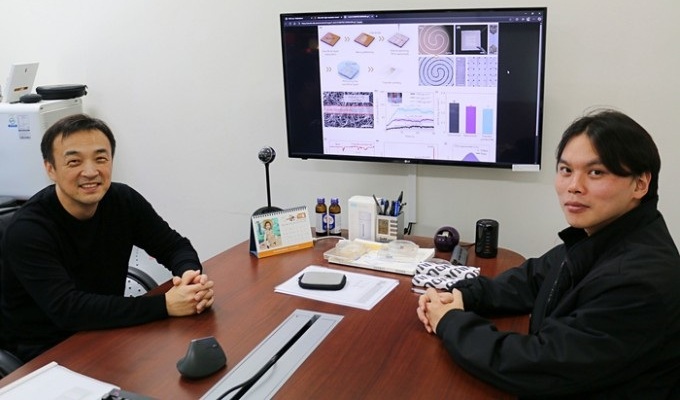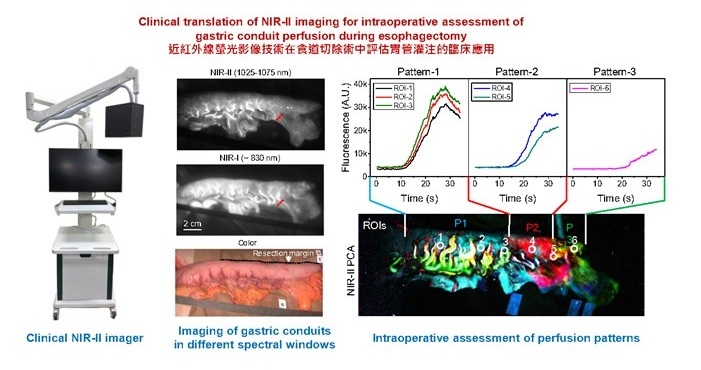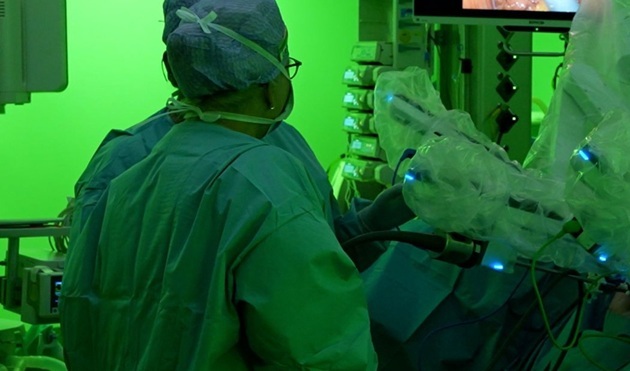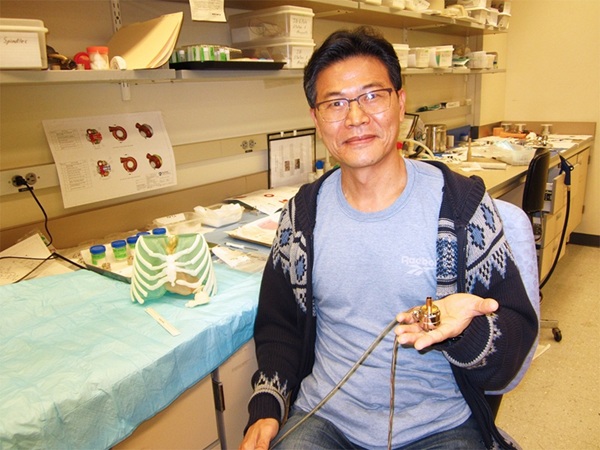Alliance to Develop Molecular Imaging Techniques
|
By HospiMedica staff writers Posted on 17 Sep 2002 |
A collaboration to undertake development of molecular imaging techniques for use in ultrasound, magnetic resonance, and nuclear medicine has been announced by Philips Medical Systems (Best, The Netherlands) and Kereos (St.Louis, MO, USA).
The collaboration will focus on image-based characterization of the molecular causes of diseases and will combine Kereos' targeted nanoparticle technology with Philips' engineering, software development, and equipment support. The goal is to facilitate development of molecular imaging agents for specific and sensitive detection of tumors and vulnerable plaque in arteries, a major cause of heart disease. The leader of the project is Dr. Samuel A. Wickline, M.D., professor of medicine, biomedical engineering, and physics at Washington University School of Medicine in St. Louis (MO, USA).
"Our team is very excited about this agreement,” said Dr. Wickline. "We are certain that it will quickly lead to major breakthroughs in advancing contrast agent and scanner technology for molecular imaging and targeted therapeutics.”
Related Links:
Philips Medical Systems
Kereos
The collaboration will focus on image-based characterization of the molecular causes of diseases and will combine Kereos' targeted nanoparticle technology with Philips' engineering, software development, and equipment support. The goal is to facilitate development of molecular imaging agents for specific and sensitive detection of tumors and vulnerable plaque in arteries, a major cause of heart disease. The leader of the project is Dr. Samuel A. Wickline, M.D., professor of medicine, biomedical engineering, and physics at Washington University School of Medicine in St. Louis (MO, USA).
"Our team is very excited about this agreement,” said Dr. Wickline. "We are certain that it will quickly lead to major breakthroughs in advancing contrast agent and scanner technology for molecular imaging and targeted therapeutics.”
Related Links:
Philips Medical Systems
Kereos
Latest Business News
- Philips and Masimo Partner to Advance Patient Monitoring Measurement Technologies
- B. Braun Acquires Digital Microsurgery Company True Digital Surgery
- CMEF 2025 to Promote Holistic and High-Quality Development of Medical and Health Industry
- Bayer and Broad Institute Extend Research Collaboration to Develop New Cardiovascular Therapies
- Medtronic Partners with Corsano to Expand Acute Care & Monitoring Portfolio in Europe
- Expanded Collaboration to Transform OR Technology Through AI and Automation
- Becton Dickinson to Spin Out Biosciences and Diagnostic Solutions Business
- Boston Scientific Acquires Medical Device Company SoniVie
- 2026 World Hospital Congress to be Held in Seoul
- Teleflex to Acquire BIOTRONIK’s Vascular Intervention Business
- Philips and Mass General Brigham Collaborate on Improving Patient Care with Live AI-Powered Insights
- Arab Health 2025 Celebrates Landmark 50th Edition
- Boston Scientific Acquires Medical Device Company Intera Oncology
- MEDICA 2024 to Highlight Hot Topics of MedTech Industry
- Start-Ups To Once Again Play Starring Role at MEDICA 2024
- Boston Scientific to Acquire AFib Ablation Company Cortex
Channels
Critical Care
view channel
AI-Enhanced Wearables Could Transform Type 2 Diabetes and Prediabetes Care
Artificial intelligence (AI)–powered wearable devices, particularly continuous glucose monitors, are rapidly changing how people with prediabetes and Type 2 diabetes understand and manage their blood sugar.... Read more
Breathable Electronic Skin Paves Way for Next-Generation Wearable Devices
Electronic skin devices are designed to adhere closely to the human body to monitor health and biosignals, but long-term use often leads to skin irritation caused by trapped sweat and poor breathability.... Read moreSurgical Techniques
view channel
3D-Printed Blood Vessel Scaffolds Could Transform Heart Bypass Surgeries
A tiny, opaque tube held up in a lab may look unremarkable at first glance, but its microscopic surface features could mark a meaningful step forward in heart bypass surgery. Measuring just about one centimeter... Read more
Novel Imaging Technique Helps View Blood Perfusion During Esophageal Surgery
Esophagectomy is a complex and high-risk surgery often required for esophageal cancer, with anastomotic leakage remaining one of its most serious complications. This defect at the surgical suture line... Read more
Minimally Invasive Surgery Proven Safe and Effective for Complex ‘Whipple’ Procedure
Tumors of the pancreatic head often require a highly complex operation known as pancreatoduodenectomy or the Whipple procedure. This surgery involves removing multiple structures and creating several internal... Read more
Catheter-Based Procedures Offer Less Invasive Option for Treatment of Valvular Disease
Valvular heart disease, caused by tight or leaky valves between heart chambers, affects up to 10% of older adults and leads to more than 120,000 deaths globally each year. Traditional open-heart surgery... Read morePatient Care
view channel
Revolutionary Automatic IV-Line Flushing Device to Enhance Infusion Care
More than 80% of in-hospital patients receive intravenous (IV) therapy. Every dose of IV medicine delivered in a small volume (<250 mL) infusion bag should be followed by subsequent flushing to ensure... Read more
VR Training Tool Combats Contamination of Portable Medical Equipment
Healthcare-associated infections (HAIs) impact one in every 31 patients, cause nearly 100,000 deaths each year, and cost USD 28.4 billion in direct medical expenses. Notably, up to 75% of these infections... Read more
Portable Biosensor Platform to Reduce Hospital-Acquired Infections
Approximately 4 million patients in the European Union acquire healthcare-associated infections (HAIs) or nosocomial infections each year, with around 37,000 deaths directly resulting from these infections,... Read moreFirst-Of-Its-Kind Portable Germicidal Light Technology Disinfects High-Touch Clinical Surfaces in Seconds
Reducing healthcare-acquired infections (HAIs) remains a pressing issue within global healthcare systems. In the United States alone, 1.7 million patients contract HAIs annually, leading to approximately... Read moreHealth IT
view channel
EMR-Based Tool Predicts Graft Failure After Kidney Transplant
Kidney transplantation offers patients with end-stage kidney disease longer survival and better quality of life than dialysis, yet graft failure remains a major challenge. Although a successful transplant... Read more







.jpg)







